
Roger and Joyce Howe Award for Excellence in Disciplinary Writing Instruction
Howe Writing Across the Curriculum Programs
The mission of the Howe Writing Across the Curriculum Programs is to ensure that all Miami faculty and graduate teaching assistants can effectively include writing as a means to support learning in their courses and programs.
 This team collaborated in the Howe Faculty Writing Fellows Program (Spring 2023) and the Miami Plan Innovation Lab to develop a new Advanced Writing class: CCA 218: Arts Thinking, Arts Writing, now taught twice by Friedman. They are also dedicated to faculty development—Stuart serves on the Howe Local Advisory Board and co-led the Howe All-Fellows Change Retreat (Jan 2024), which Reenan attended. Reenan completed HCWE’s six-part Supporting Graduate Student Learning Through Writing series, and both Reenan and Friedman joined the Reflection Matters series (Spring 2025). Committed teacher-scholars, they strive to develop students’ critical thinking and writing skills across CCA.
This team collaborated in the Howe Faculty Writing Fellows Program (Spring 2023) and the Miami Plan Innovation Lab to develop a new Advanced Writing class: CCA 218: Arts Thinking, Arts Writing, now taught twice by Friedman. They are also dedicated to faculty development—Stuart serves on the Howe Local Advisory Board and co-led the Howe All-Fellows Change Retreat (Jan 2024), which Reenan attended. Reenan completed HCWE’s six-part Supporting Graduate Student Learning Through Writing series, and both Reenan and Friedman joined the Reflection Matters series (Spring 2025). Committed teacher-scholars, they strive to develop students’ critical thinking and writing skills across CCA. This cross-disciplinary faculty team joined the Howe Faculty Writing Fellows Program in Spring 2024 to support and innovate writing instruction across CCA. They later participated in a follow-up experience to explore how CCA faculty design writing assignments and what genres students need to learn. In Spring 2025, they helped facilitate Reflection Matters: Sensemaking Series for Writing and Thinking in the Arts, the first division-wide writing development led by HCWE. Individually, they remain committed to effective writing instruction—May, for example, completed HCWE’s six-part series on supporting graduate student learning through writing.
This cross-disciplinary faculty team joined the Howe Faculty Writing Fellows Program in Spring 2024 to support and innovate writing instruction across CCA. They later participated in a follow-up experience to explore how CCA faculty design writing assignments and what genres students need to learn. In Spring 2025, they helped facilitate Reflection Matters: Sensemaking Series for Writing and Thinking in the Arts, the first division-wide writing development led by HCWE. Individually, they remain committed to effective writing instruction—May, for example, completed HCWE’s six-part series on supporting graduate student learning through writing.
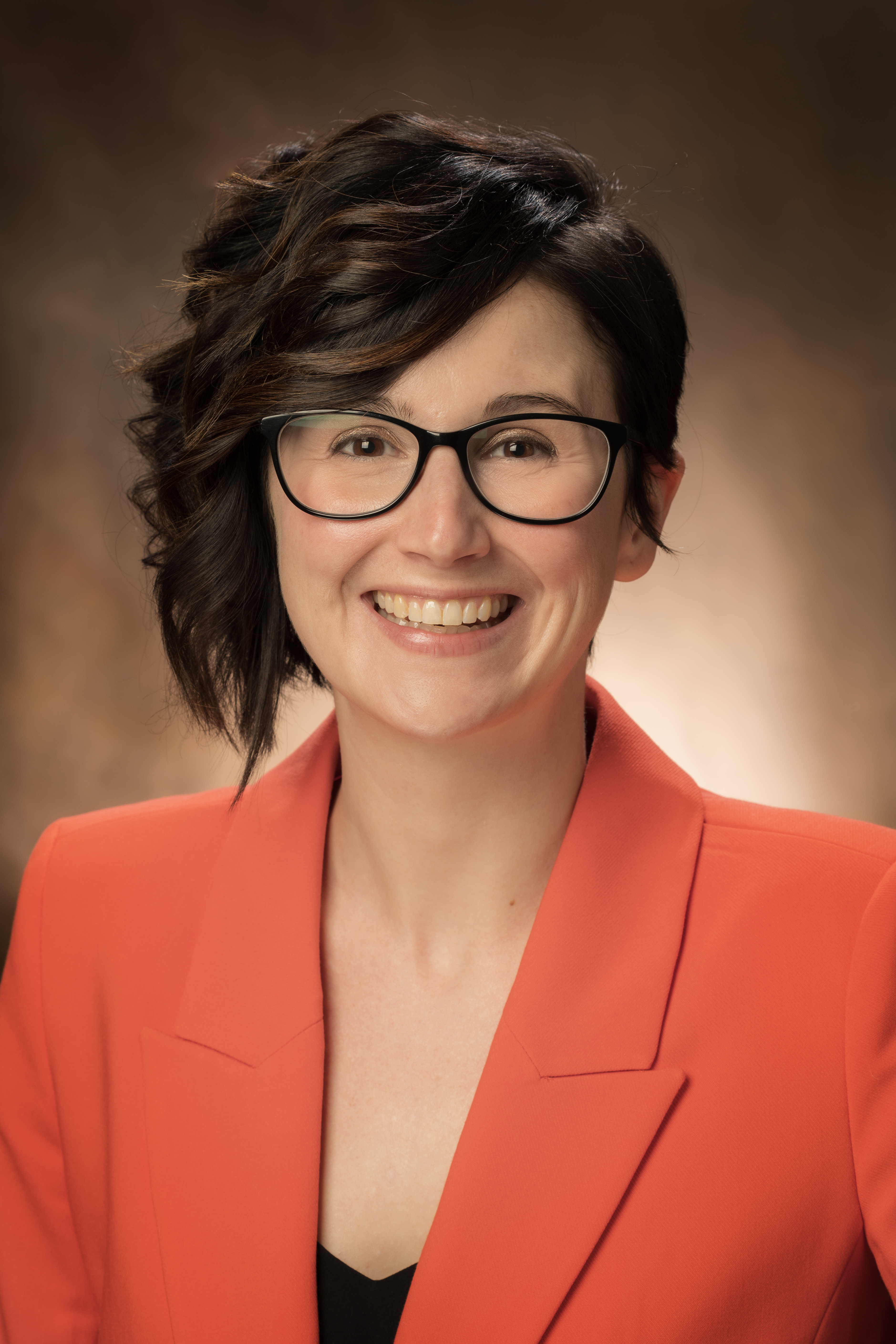 Dr. Elizabeth Hoover richly deserves this award for her innovations and consistent efforts to support the teaching and learning of writing not only in her own undergraduate and graduate courses but across the courses in her department and in the wider university through her work in the Office of Liberal Education. She began her efforts to innovate with writing as a Howe Faculty Writing Fellow in Spring 2019 and continued her work through a year-long Howe Faculty Learning Community focused on innovating graduate support structures for writing. She has innovated, assessed and revised her department’s 2-course Advanced Writing sequence, resulting in a portfolio, one of AAC&U’s “high-impact practices.” She also conducted extensive research with the alumni of her department’s MA program in order to entirely revise it. Through the Office of Liberal Education, she invented and implemented the Miami Plan Innovation Lab, helping cross-disciplinary teams completely reimagine what is possible in high-impact courses. The awards committee noted that she apparently works “tirelessly” across disciplinary and divisional lines to promote the role of writing throughout the University.
Dr. Elizabeth Hoover richly deserves this award for her innovations and consistent efforts to support the teaching and learning of writing not only in her own undergraduate and graduate courses but across the courses in her department and in the wider university through her work in the Office of Liberal Education. She began her efforts to innovate with writing as a Howe Faculty Writing Fellow in Spring 2019 and continued her work through a year-long Howe Faculty Learning Community focused on innovating graduate support structures for writing. She has innovated, assessed and revised her department’s 2-course Advanced Writing sequence, resulting in a portfolio, one of AAC&U’s “high-impact practices.” She also conducted extensive research with the alumni of her department’s MA program in order to entirely revise it. Through the Office of Liberal Education, she invented and implemented the Miami Plan Innovation Lab, helping cross-disciplinary teams completely reimagine what is possible in high-impact courses. The awards committee noted that she apparently works “tirelessly” across disciplinary and divisional lines to promote the role of writing throughout the University. Meghan Phadke, Jane Lance, Jennifer Mysona, and Nazan Bautista build on the work undertaken by previous cohorts of TCE faculty members who, over the course several years, have worked to entirely redesign their departmental goals, mission statement, curricula, and assignments. This team sought to re-imagine the key assessment their department utilizes. They determined that their department’s previous key assessment did not embody their shared values or effectively measure their student’s enactment of threshold concepts across time. Together, this team researched the AAC&U high-impact practice of cumulative eportfolios that TCE students could create and revise across time. They piloted an eportfolios for the undergraduate Primary Education (Grades PK-5) Program. This entailed designing reflective assignments to help students draw connections between their courses, building training for students at various points in the semester, designing a rubric, and doing collaborative assessments of student work. They generously shared what they learned with other teams engaged in eportfolio piloting this spring. Their work not only enacts best practices for assessing learning and writing, but also provides an important model for other departments and programs at Miami.
Meghan Phadke, Jane Lance, Jennifer Mysona, and Nazan Bautista build on the work undertaken by previous cohorts of TCE faculty members who, over the course several years, have worked to entirely redesign their departmental goals, mission statement, curricula, and assignments. This team sought to re-imagine the key assessment their department utilizes. They determined that their department’s previous key assessment did not embody their shared values or effectively measure their student’s enactment of threshold concepts across time. Together, this team researched the AAC&U high-impact practice of cumulative eportfolios that TCE students could create and revise across time. They piloted an eportfolios for the undergraduate Primary Education (Grades PK-5) Program. This entailed designing reflective assignments to help students draw connections between their courses, building training for students at various points in the semester, designing a rubric, and doing collaborative assessments of student work. They generously shared what they learned with other teams engaged in eportfolio piloting this spring. Their work not only enacts best practices for assessing learning and writing, but also provides an important model for other departments and programs at Miami.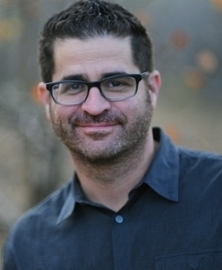 Dr. Brian Schultz has consistently worked to help faculty in Teacher Education reconceptualize their courses and programs in order to enact not only best practices around writing, teaching, and learning, but also to engage in a justice-oriented, anti-oppressive program of teacher education.
Dr. Brian Schultz has consistently worked to help faculty in Teacher Education reconceptualize their courses and programs in order to enact not only best practices around writing, teaching, and learning, but also to engage in a justice-oriented, anti-oppressive program of teacher education.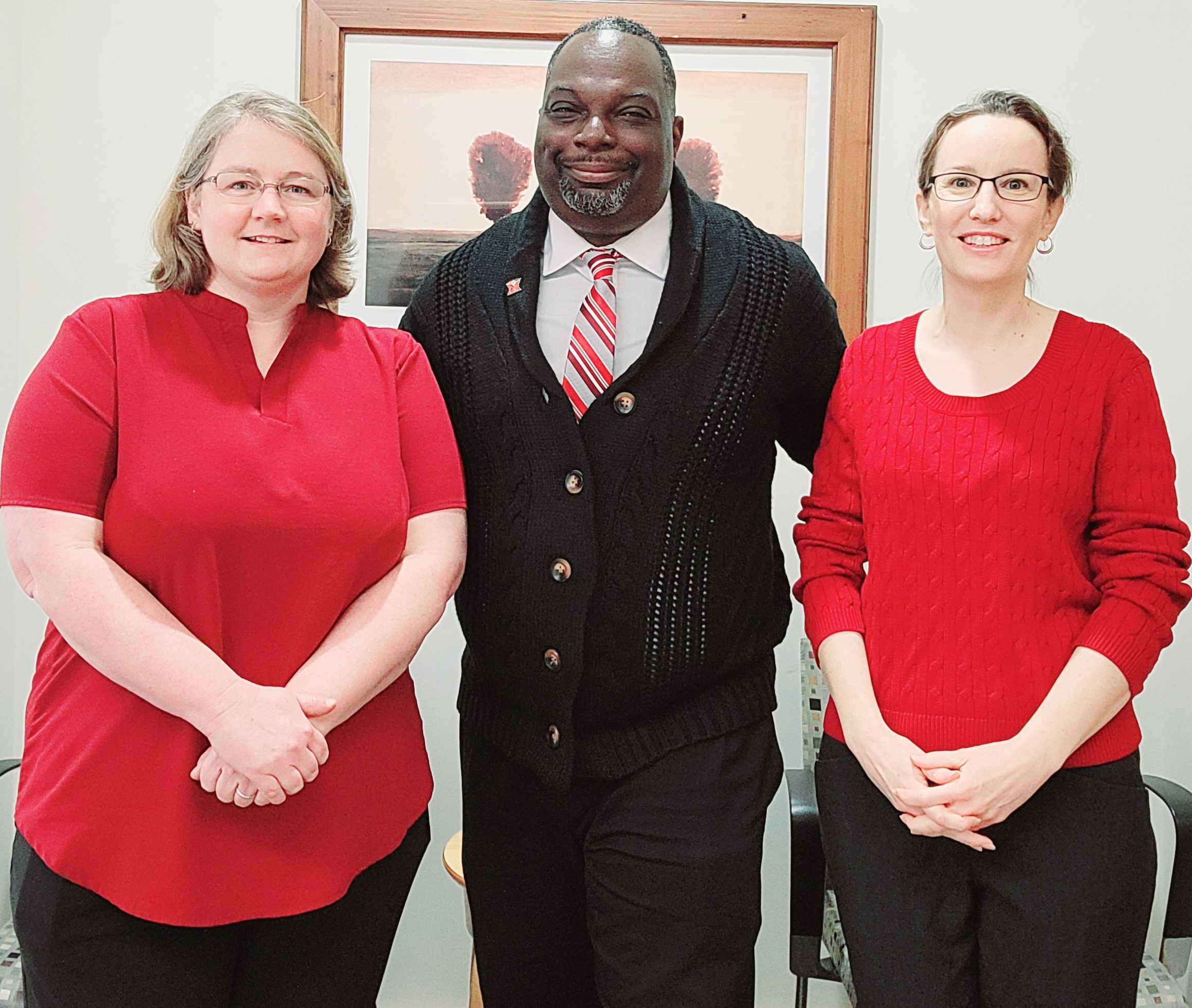 Drs. Jay Smart, Jennifer Quinn, and Carrie Hall have worked both collectively and individually over time to provide scaffolded, research-supported writing instruction for their students in Psychology.
Drs. Jay Smart, Jennifer Quinn, and Carrie Hall have worked both collectively and individually over time to provide scaffolded, research-supported writing instruction for their students in Psychology.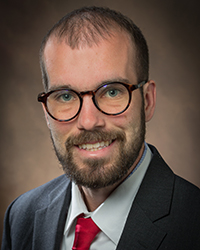 Sidebottom was one of the first faculty members from the College of Engineering and Computer Science to participate in the Howe Faculty Writing Fellows Program. He graduated with the Fellows cohort of Fall 2019. In an immediate effort to put what he learned in Fellows into action, Sidebottom began research on the role of writing in MME courses. He conducted a rigorous audit of existing writing instruction and underlying departmental support for it. The results showed that MME students write in nearly all classes, and in a range of genres. Writing evaluation could be worth as much as 70% of a course grade, with writing assuming particular importance in upper-level and laboratory classes. Typically, Sidebottom found, feedback came in the later stages of a student’s writing process.
Sidebottom was one of the first faculty members from the College of Engineering and Computer Science to participate in the Howe Faculty Writing Fellows Program. He graduated with the Fellows cohort of Fall 2019. In an immediate effort to put what he learned in Fellows into action, Sidebottom began research on the role of writing in MME courses. He conducted a rigorous audit of existing writing instruction and underlying departmental support for it. The results showed that MME students write in nearly all classes, and in a range of genres. Writing evaluation could be worth as much as 70% of a course grade, with writing assuming particular importance in upper-level and laboratory classes. Typically, Sidebottom found, feedback came in the later stages of a student’s writing process.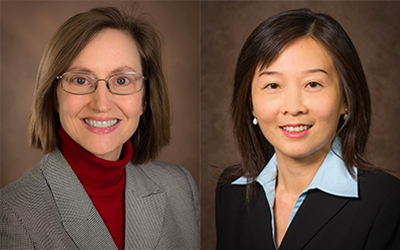 As Faculty Writing Fellows in 2017, Kinghorn and Shao began a project to understand how writing was being taught in economics classrooms. They designed a survey, documented existing practices and assignments, then presented their findings to colleagues. An insight they found, for example, was that they could not necessarily depend on certain aspects of writing, like how to communicate findings from a statistical model, to be taught by faculty outside the economics department. They realized the department could revise its curriculum to ensure that both College of Arts and Sciences students and Farmer School of Business economics majors were being taught conventions of writing for economics by experts in the field.
As Faculty Writing Fellows in 2017, Kinghorn and Shao began a project to understand how writing was being taught in economics classrooms. They designed a survey, documented existing practices and assignments, then presented their findings to colleagues. An insight they found, for example, was that they could not necessarily depend on certain aspects of writing, like how to communicate findings from a statistical model, to be taught by faculty outside the economics department. They realized the department could revise its curriculum to ensure that both College of Arts and Sciences students and Farmer School of Business economics majors were being taught conventions of writing for economics by experts in the field. Dr. Johnson demonstrates the difference that one faculty member can make when committed to core practices around the teaching and learning of writing in a discipline. He has been working for 15 years to improve disciplinary writing in psychology at Miami on many fronts. He redesigned the PSY 293/294 course sequence required of all majors to a problem-based approach that includes writing in both and created a set of scaffolded materials for the sequence; he conducted training for the graduate students teaching the associated lab sections; he worked on a departmental committee that added a capstone course, PSY 410, to ensure continued writing in the major. His work resulted in an approved Advanced Writing plan for his department. He has since spearheaded an effort to revise the 293/294 curriculum, demonstrating a commitment to ongoing reflection and revision in pedagogical practices. He also founded an undergraduate research journal in the Psychology department, in order to provide a venue for disseminating the best honors theses written by psychology students each year. To support this work, he developed a course in editing and publishing, PSY 394, in which the journal’s undergraduate editors could be trained. As the inaugural Director of Undergraduate Research, he designed a two-course sequence, UNV 171/72, where first-year students could conduct and present original research. He also leads the professional development seminar, PSY 603/604, required of all doctoral students, and includes instruction on genres important to the discipline.
Dr. Johnson demonstrates the difference that one faculty member can make when committed to core practices around the teaching and learning of writing in a discipline. He has been working for 15 years to improve disciplinary writing in psychology at Miami on many fronts. He redesigned the PSY 293/294 course sequence required of all majors to a problem-based approach that includes writing in both and created a set of scaffolded materials for the sequence; he conducted training for the graduate students teaching the associated lab sections; he worked on a departmental committee that added a capstone course, PSY 410, to ensure continued writing in the major. His work resulted in an approved Advanced Writing plan for his department. He has since spearheaded an effort to revise the 293/294 curriculum, demonstrating a commitment to ongoing reflection and revision in pedagogical practices. He also founded an undergraduate research journal in the Psychology department, in order to provide a venue for disseminating the best honors theses written by psychology students each year. To support this work, he developed a course in editing and publishing, PSY 394, in which the journal’s undergraduate editors could be trained. As the inaugural Director of Undergraduate Research, he designed a two-course sequence, UNV 171/72, where first-year students could conduct and present original research. He also leads the professional development seminar, PSY 603/604, required of all doctoral students, and includes instruction on genres important to the discipline.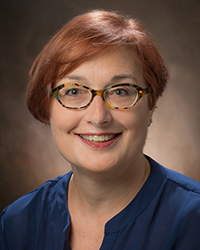 Jennifer Kinney exemplifies the teacher/scholar model for which Miami is rightly known. She has worked tirelessly with her colleagues in gerontology to support the teaching and learning of writing for gerontology graduate students. Although she has been consulting with the Howe Center for Writing Excellence staff for many years, in Summer 2018 she completed the Howe Faculty Writing Fellows Program with two of her colleagues. As a result of their thinking in that program, she worked to completely redesign the support for writing across the graduate curriculum, pushed students to take the teaching certification offered by CTE, and then in curricular space left by that move, designed an innovative new course, GTY705, devoted to helping graduate students write in the ways that the field expects, and draft both articles and grant proposals. She created a scaffolded set of assignments to help students understand the rhetorical moves of various academic genres, and work to enact those moves themselves. She and her colleagues created a
Jennifer Kinney exemplifies the teacher/scholar model for which Miami is rightly known. She has worked tirelessly with her colleagues in gerontology to support the teaching and learning of writing for gerontology graduate students. Although she has been consulting with the Howe Center for Writing Excellence staff for many years, in Summer 2018 she completed the Howe Faculty Writing Fellows Program with two of her colleagues. As a result of their thinking in that program, she worked to completely redesign the support for writing across the graduate curriculum, pushed students to take the teaching certification offered by CTE, and then in curricular space left by that move, designed an innovative new course, GTY705, devoted to helping graduate students write in the ways that the field expects, and draft both articles and grant proposals. She created a scaffolded set of assignments to help students understand the rhetorical moves of various academic genres, and work to enact those moves themselves. She and her colleagues created a  Drs. Fennen, Pohlhaus, and Miller represent the very best of what is possible when groups of faculty team up to innovate and revise their curriculum in ways that align with their discipline’s values and practices, while also recognizing the need to explain to students, parents, employers, and the public at large the value of a degree in the humanities. They have worked tirelessly since May 2018 to implement a “mindful, coherent system of practices for teaching students how to write philosophy.” After completing the Howe Faculty Writing Fellows Program in May 2018 (work highlighted in a
Drs. Fennen, Pohlhaus, and Miller represent the very best of what is possible when groups of faculty team up to innovate and revise their curriculum in ways that align with their discipline’s values and practices, while also recognizing the need to explain to students, parents, employers, and the public at large the value of a degree in the humanities. They have worked tirelessly since May 2018 to implement a “mindful, coherent system of practices for teaching students how to write philosophy.” After completing the Howe Faculty Writing Fellows Program in May 2018 (work highlighted in a 
